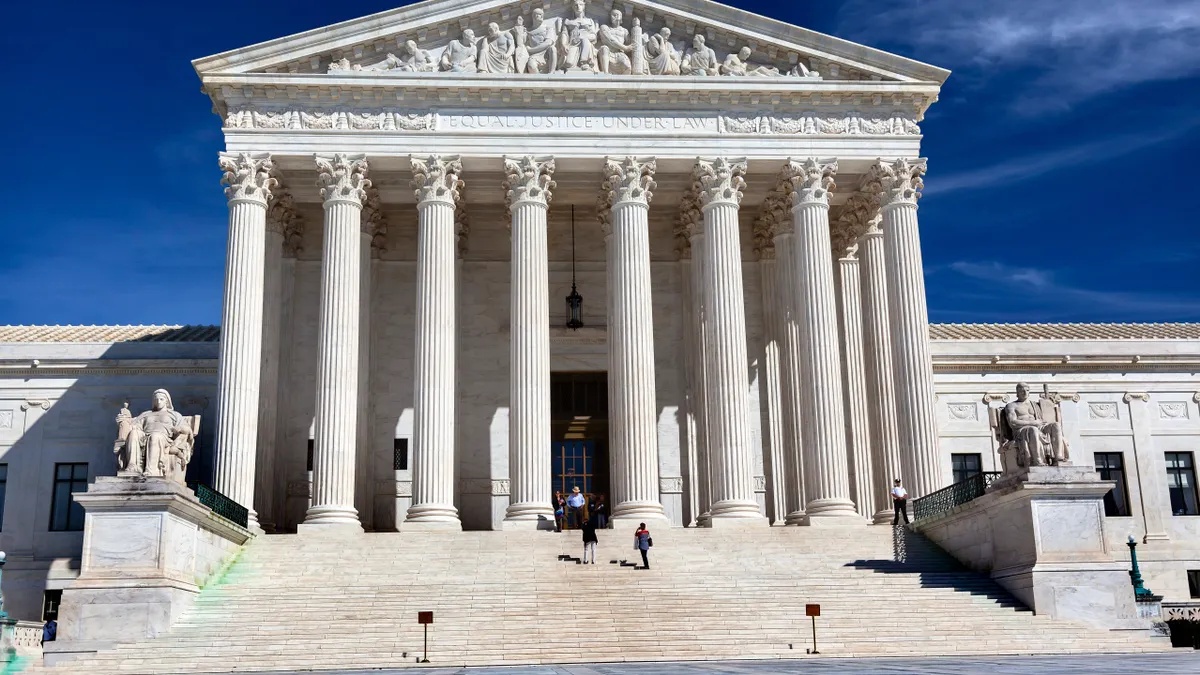Dive Brief:
- The U.S. Supreme Court will hear arguments this week in Endrew F. v. Douglas County School Board, a case that could change the federal definition of adequate special education services for the first time since 1982.
- Education Week reports the 1982 case, Board of Education of the Hendrick Hudson Central School District v. Rowley, said special education students are entitled to a “free, appropriate public education” and that special education must confer “some educational benefit” — and now, the Supreme Court could clarify just what “some educational benefit” actually means.
- The Obama administration has argued on behalf of the family at the center of the Endrew F. case, saying students should have the opportunity to make “significant educational progress,” though school district associations have argued on the side of the Douglas County School board that the current standard is enough to ensure adequate services.
Dive Insight:
The nation has come a long way in educating students with disabilities since 1975, when the precursor to the Individuals with Disabilities Education Act was passed. The Education for All Handicapped Children Act set out to end the practice of excluding children with disabilities from public schools. Now that all children are welcome in public schools, the level of services they receive has been another matter.
In many districts, special education services are incredibly complicated for parents to navigate. Parents who do not speak English fluently are at a particular disadvantage in the jargon-heavy field, especially if schools do not comply with federal regulations that require them to provide trained interpreters at every meeting and distribute individualized education program documents in their native languages. As the Supreme Court considers the Endrew F. case, districts nationwide can consider whether their services live up to the standards already in place.











